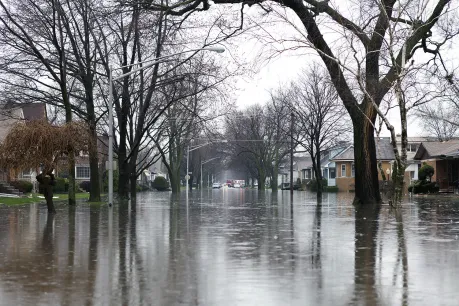How to Recover Financially From Floods and Other Disasters

Injured?
If your home has been damaged in a flood or other disaster, your financial situation may be looking shaky to say the least. Thankfully, there are things you can do and resources at your disposal that can help you bounce back faster in the wake of a catastrophe. Here are five.
(1) Document Everything
Take photos and videos of the damaged property. Be sure to capture both wide and close-up images of the interior and exterior of your home or business. Err on the side of taking too many photos, not too few, and be sure to store backups online in case something happens to your phone.
You should also keep a detailed written record of all damage, and copies of all receipts for repairs, medical bills, and hotel stays. You need this evidence to file a successful insurance claim or lawsuit. After all, you can’t recover money for damages that you can’t prove.
(2) File an Insurance Claim ASAP
Many insurance companies require claims to be filed within a reasonable amount of time, so don’t endanger your claim by hesitating. File it as soon as you’ve documented all the damage; otherwise the insurance company may try to invalidate your claim by saying you violated your policy by not filing soon enough.
Though many homeowners insurance plans don’t include coverage for floods or hurricanes, it’s worth rereading your policy to see what exactly it covers. If you’re not sure, you can call your insurance company and ask them. Being proactive after (and before) a disaster is critical.
If you think you have a valid insurance claim, but the insurance company denies, delays, or undervalues that claim, contact an attorney right away to explore your legal options. As attorney Mark Nation likes to say, “Every insurance case I’ve ever won had one thing in common: They all started with ‘No.’” A denial from your insurance company is not necessarily the end of your claim or recovery — it may just be the beginning.
(3) Apply for Disaster Assistance Programs
The federal government provides disaster assistance in the form of loans, grants, tax deductions and tax deadline extensions, floodproofing, and counseling. Depending on where you live and the catastrophe you survived, you may or may not be eligible for this aid, but it’s certainly worth finding out. If your small business is in trouble, you may want to apply for a low-interest disaster loan through the Small Business Administration (SBA).
The Red Cross, Salvation Army, and church groups are often on the ground after a disaster to provide supplies, groceries, medical aid, and other essentials. The Red Cross’s disaster relief website also offers resources to people in need of shelter, emotional counseling, or information (e.g., What To Do Before, During, and After a Flood). And there may be long-term recovery committees (LTRCs) in your area.
These groups can bolster and accelerate your recovery. There’s no shame in asking for help at a time like this.
(4) Speak With a Financial Professional
If you can afford to do so, you should speak with a licensed financial counselor who can help shore up your finances and plan for the future. You can use the following websites to find help:
- Accredited Financial Counselors
- Certified Financial Planners
- National Foundation for Credit Counseling
If you are in danger of foreclosure, you can receive free foreclosure avoidance counseling through the U.S. Department of Housing and Urban Development (HUD). If you run a small business, you can also get free business counseling through the SBA.
(5) Watch Out for Scams
After a disaster, it’s common for scammers to prey on people who are in a vulnerable state, financially and emotionally. The last thing you need is to fall victim to one of these schemes. The Federal Communications Commission (FCC) has several tips for protecting yourself. Among the things to watch out for:
- Requests for your social security or credit card number
- Suspicious emails that ask you to click a link or download/open an attachment
- Someone claiming to be from the government or your insurance company
- Fake charities and fraudulent crowdfunds (you can verify charities via Charity Navigator or a similar site)
A good rule of thumb is “If it sounds too good to be true, it probably is.” You should remain especially vigilant, skeptical even, after a disaster. By doing so, you could save thousands of dollars and keep your credit intact.

We've got your back
Injured?
Not sure what to do next?
We'll guide you through everything you need to know.
